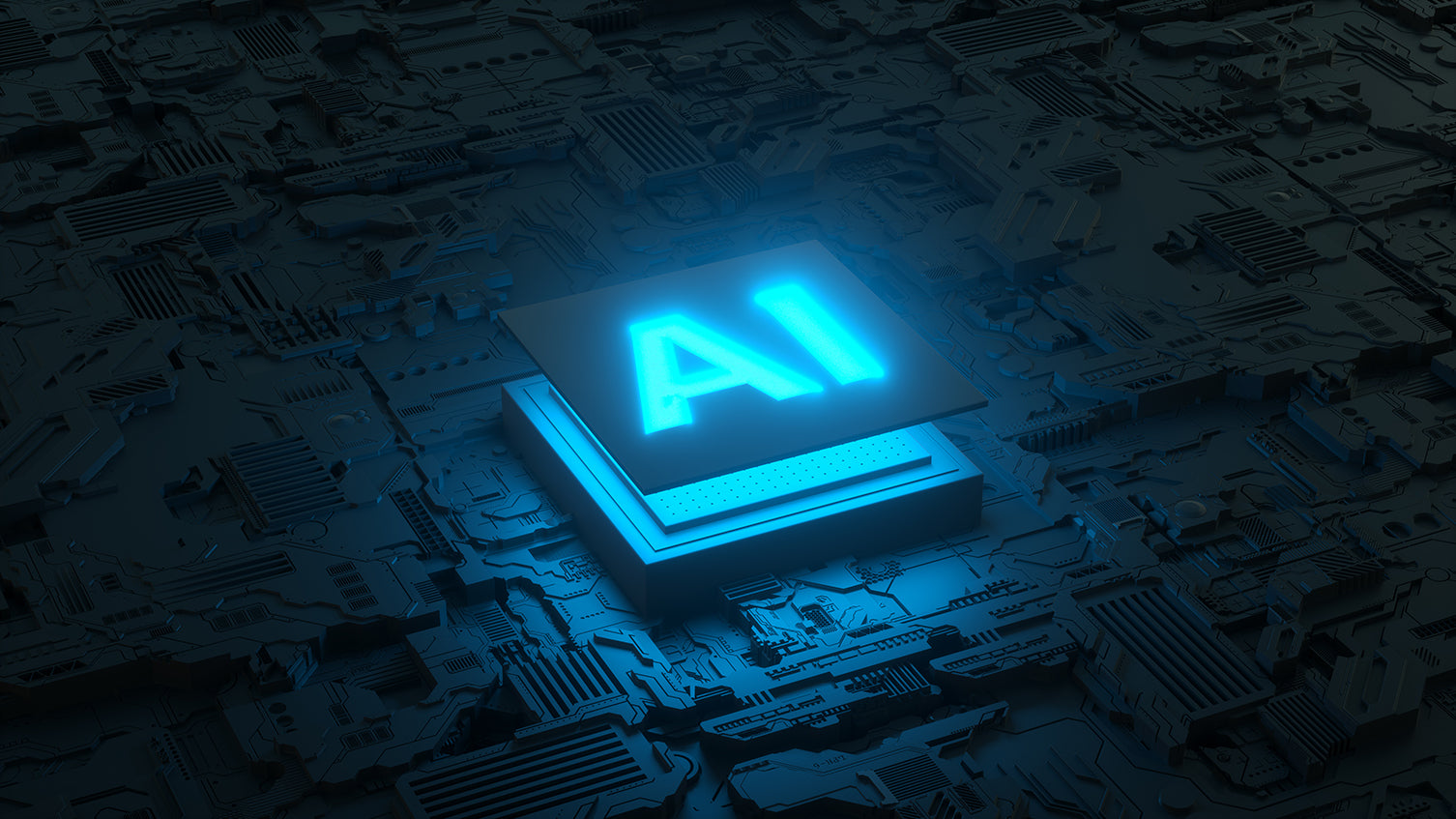You have no items in your shopping basket.
Dr Richard Dune
07-02-2025
Defining AI and its role in health and social care
Image by thichas via Envato Elements
What does AI mean for health and social care? Is it just a transformative force or just an advanced algorithm?
In a 2024 article in the MIT Technology Review, Will Douglas Heaven posed a seemingly simple question: ‘What is AI?’ At first glance, the answer seems obvious. We’re surrounded by AI applications like ChatGPT, BERT, LLaMA, Claude, and Cohere. Artificial intelligence (AI) has moved beyond academic circles and is reshaping industries, including health and social care. But as Heaven highlighted, defining AI isn't just challenging - it's a dynamic concept shaped by technological evolution, public perception, and corporate ambition.
In this blog, Dr Richard Dune explores the evolving definition of AI, its regulatory implications, and its transformative impact on health and social care.
Understanding AI isn't merely an academic exercise. It influences how we create policies, regulate technologies, uphold ethical standards, and apply innovations in real-world settings. In health and social care, this understanding determines how AI integrates into patient care, social services, and compliance frameworks. But first, we need to answer the fundamental question: ‘What exactly is AI?’
Defining AI - From Turing’s vision to today’s innovations
AI's conceptual journey began with Alan Turing, the British mathematician and codebreaker. In 1950, Turing famously asked, "Can machines think?" His groundbreaking Turing Test suggested that if a machine could engage in human-like conversation indistinguishable from that of a human, it could be considered intelligent.
Since then, AI has evolved through multiple eras, each reshaping its definition:
- 1956 - The Dartmouth Conference - AI was formally defined as "the science and engineering of making intelligent machines."
- 1980s - Expert systems era - AI became synonymous with rule-based decision-making designed to simulate human expertise.
- 1990s-2000s - The rise of Machine Learning (ML) - AI shifted towards data-driven systems capable of learning patterns without explicit programming.
- 2010s-Present - Deep learning revolution - Powered by neural networks, AI now mimics aspects of human cognition, with models like GPT-4, BERT, and LaMDA showcasing unprecedented abilities in language generation and data analysis.
Yet, a lingering question remains: ‘Is AI truly intelligent, or is it simply executing complex statistical calculations at scale?’
This question is more than philosophical. It directly affects how we regulate, adapt, and trust AI - especially in sensitive health and social care sectors.
The importance of definitions - Regulation and governance challenges
Without a clear definition, how can we regulate AI effectively? This dilemma is central to policymakers worldwide. In the UK, the Information Commissioner's Office (ICO) adopts a broad, risk-based definition of AI:
"AI is an umbrella term for technologies that automate decision-making, either fully or with human oversight."
This expansive definition carries significant regulatory implications, including:
- EU’s AI Act - Categorises AI applications by risk, from minimal (e.g., AI chatbots) to high (e.g., AI in healthcare diagnostics).
- UK’s ICO - Focuses on data protection, accountability, and transparency, ensuring AI decisions are explainable and ethical.
- USA’s AI Bill of Rights - Aims to safeguard against AI-driven discrimination and bias, promoting fairness and accountability.
However, regulators face a balancing act. They must encourage innovation without compromising safety. This challenge is compounded by AI's rapid development cycles and the powerful influence of tech giants like OpenAI, Google DeepMind, and xAI.
AI in health and social care - Opportunities and regulatory frontiers
AI is already making significant inroads into health and social care, transforming areas such as:
- Diagnostic imaging - AI algorithms can detect anomalies in medical images with remarkable accuracy.
- Robotic surgery - Enhances precision and reduces recovery times.
- Predictive analytics - Anticipates patient deterioration, improving intervention outcomes.
- Personalised medicine - Tailors treatments based on individual genetic profiles and health data.
Yet, regulatory oversight varies across the UK:
- England - The Care Quality Commission (CQC) evaluates AI-powered health solutions for patient safety and ethical compliance.
- Wales and Scotland - Health inspectorates assess AI's role in clinical decision-making, focusing on bias mitigation and transparency.
- Northern Ireland - Adapts regulations to AI-driven social care solutions, particularly for vulnerable populations like the elderly.
Key challenges in AI adoption for health and social care
Despite its promise, AI presents several challenges:
- Bias and fairness - AI systems trained on non-representative datasets risk reinforcing existing health inequalities.
- Transparency and explainability - Clinicians, patients, and regulators must understand AI-driven decisions to maintain trust.
- Ethical accountability - Determining responsibility for AI errors is complex. If an AI system makes a faulty diagnosis, who is liable - the clinician, the software developer, or the algorithm?
- Regulatory lag - AI evolves faster than regulatory frameworks, posing risks related to real-time oversight and patient safety.
Addressing these issues becomes even more challenging without a standardised definition of AI.
Navigating the future of AI in health and social care
As AI technologies proliferate, knowledge about their capabilities spreads rapidly through social media, open-source platforms, and industry collaborations. While this accelerates innovation, it also introduces risks:
- Misinformation - AI-generated content can be highly convincing yet factually inaccurate.
- Corporate influence - Tech giants may shape AI narratives to prioritise profit over public good.
- Regulatory catch-up - Policymakers struggle to keep pace with AI’s rapid development, creating gaps in governance.
Despite these risks, AI's potential in health and social care is undeniable. Realising this potential requires clear definitions, ethical adoption practices, and robust regulatory frameworks.
Defining AI for a safer and smarter future
While Douglas Heaven's reflections remind us that while AI's definition is fluid, leaving it undefined is not an option. Ambiguity risks misunderstanding, misuse, or overregulation.
For health and social care leaders, policymakers, and stakeholders, the path forward is clear:
- Define AI clearly to create a shared understanding across sectors.
- Regulate AI responsibly to protect patients and promote ethical practices.
- Adopt AI ethically and transparently to build public trust and drive meaningful outcomes.
The AI revolution isn’t coming - it’s already here. Its impact on health and social care will depend on how we define, regulate, and integrate it into our systems today.
Empowering compliance with ComplyPlus™
At The Mandatory Training Group, we're leading the way in supporting health and social care organisations to navigate AI-driven compliance challenges through ComplyPlus™. This innovative platform helps streamline governance, manage regulatory requirements, and ensure your organisation stays ahead of emerging AI standards.
Learn more about how ComplyPlus™ can support your compliance journey.
Our CPD-accredited eLearning courses equip your team with essential compliance skills supported by AI-driven monitoring to stay ahead of regulations.
About the author
Dr Richard Dune
With over 25 years of experience, Dr Richard Dune has a rich background in the NHS, the private sector, academia, and research settings. His forte lies in clinical R&D, advancing healthcare tech, workforce development, and governance. His leadership ensures that regulatory compliance and innovation align seamlessly.

Related blog articles
View allContact us
Complete the form below to start your ComplyPlusTM trial and transform your regulatory compliance solutions.







